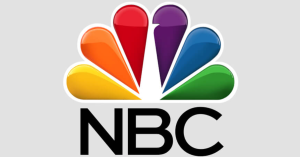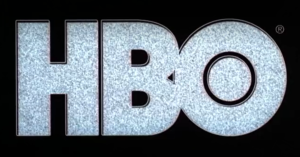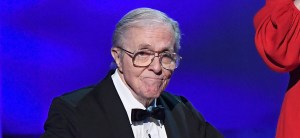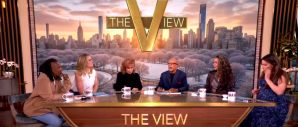A growing number of representatives in the U.S. Congress are calling for a monthly stimulus check sent to Americans for the duration of the coronavirus pandemic. On Tuesday, it received the added support of former presidential candidate Andrew Yang. Yang is no stranger to the idea, having run his campaign around the promise of Universal Basic Income (UBI) to combat the growing threat automation poses to the job market.
Congress is beginning to seriously consider a measure to approve monthly coronavirus relief payments for at least six months. A fledgling bill called the Emergency Money for the People Act would guarantee $2,000 per month for most taxpayers, ensuring that Americans could safely practice social distancing. On Tuesday, Yang added his support for the idea, which is hardly a surprise given his advocacy for UBI in the past. Now, many of Yang’s vehement supporters want to make sure he gets credit for his early adoption of the idea.
Videos by PopCulture.com
Millions of Americans have gotten a single stimulus check worth up to $1,200 under the CARES Act, but for those out of work, that money has probably already gone to pay for food, housing or utilities. “They essentially helped pay last month’s bills,” said Yang in an appearance on Fox 11. “This month’s bills, and next month’s bills, are right around the corner. We have to put $2,000 a month into everyone’s hands for the duration of the crisis… because that money doesn’t disappear, it goes right back into our local economies, into groceries, rent, fuel, and things that help keep our communities, frankly, functioning.”
More and more lawmakers seem to agree. In total, 28 Democratic representatives have now cosponsored the Emergency Money for the People Act, feeling that taking care of basic needs is the best way to ensure that Americans continue social distancing.
For Yang, the idea goes even further than that. Through his background in Silicon Valley, Yang came to believe that the automation of more and more jobs would inevitably leave vast swaths of Americans out of jobs, with no new work to replace it. Through a system of automation taxes, Yang wanted to implement UBI for those people in the United States.
With the coronavirus pandemic upon us, Yang’s platform seems closer to reality than ever, and many Americans are now revisiting it. Here’s a breakdown of how Yang proposed UBI in the U.S.
Background

Yang grew up in Westchester County, New York, the younger son of two immigrants from Taiwan. He skipped at least one grade in school, attended gifted summer programs, went to an elite boarding school and then graduated from Brown University with a degree in economics and political science. Yang then attended Columbia Law School, graduating in 1999.
Yang worked as a corporate lawyer in New York City for a brief time, but found the work unfulfilling. In a profile for The Washington Post, Yang later said that the job was “a pie-eating contest, and if you won, your prize was more pie,” and that he wanted to “build something” instead.
After that, Yang worked in some of the earliest online startups, as well as the health care industry and a standardized test preparation company. He also founded Venture for America, a nonprofit dedicated to helping potential entrepreneurs find the resources they needed to continue pushing the U.S. forward.
Finally, Yang has written two books throughout his career — Smart People Should Build Things in 2014 and The War on Normal People in 2018. Both are about his experiences in the world of business, his thoughts on entrepreneurship and his belief in UBI as the future for America.
Platform
For those that had heard of Yang, this was the reputation he brought into the 2020 presidential race. He sometimes described his political views as “Human-Center Capitalism.” This included the implementation of UBI through a program that Yang called the “Freedom Dividend.”
As president, Yang promised, every U.S. citizen over the age of 18 years old would receive $1,000 per month from the U.S. government. He argued that this was necessary to make up for the number of jobs being lost to technological automation, which he projected would increase drastically in the coming years.
How to Pay For It

To pay for the Freedom Dividend, Yang proposed a value-added tax on large American corporations. He argued that he was qualified to combat corporate tax avoidance thanks to his background as a lawyer. Most other countries in the world have a value-added tax in their laws, though some refer to it as a goods and services tax. Either way, it is a complex method of taxing a product or service at every stage of production and distribution, compensating a community for the environment and infrastructure it provided for the creation of that product.
Freedom Dividend vs. Other Benefits
Yang’s plan included other forms of welfare already in place. According to Yang, the Freedom Dividend would replace some extant welfare programs, but others would remain in place, meaning that people could continue collecting aid they already received with an additional $1,000 per month on top of it.
Yang’s plan also noted that the Freedom Dividend would operate on an opt-in basis, so Americans who did not want the stipend for one reason or another did not need to refuse it. According to a report by USA Today, he theorized that a society with UBI would produce “healthier people, less stressed-out people, better-educated people, stronger communities, more volunteerism, [and] more civic participation.”
Universal Health Care

While Yang advocated for Universal Basic Income, he was more moderate on other universal programs, such as health care. According to a report by CNN, Yang said in November that he supported “the spirit of Medicare for All” but also said that as president, he would take a gradual approach to it in order to convince the American people. He wanted to leave the option of private insurance available for those who wanted it, and thought that the public would eventually realize “that private insurance is not what [they] need” and that Medicare for All is “superior to [their] current insurance.”
Still, Yang’s policy proposal during his presidential campaign did not include a public health insurance option, nor did it commit to Medicare for All. He was criticized by some for his commitment to UBI and his apparent hesitation on any form of universal health care.
Post-Campaign
Yang suspended his presidential campaign on Feb. 11, 2020, and later endorsed Joe Biden for president. However, Yang has continued to advocate for UBI in media appearances since then, and has become a regular media presence. Eight days after suspending his campaign, Yang took a job as a political commentator on CNN.
Yang will soon be launching his own podcast as well, titled Yang Speaks. An audiobook version of his second publication The War on Normal People: The Truth About America’s Disappearing Jobs and Why Universal Basic Income Is Our Future, is now available for free on YouTube, sparking more discussion than ever about UBI in the U.S.
In February, Yang mentioned on the air that it was “flattering to be considered for a VP role or any role in someone’s campaign,” implying that one of the remaining candidates was considering him. He also later said that he was interested in running for Mayor of New York City in 2021.
Earlier Examples of UBI

Yang has popularized UBI for modern Americans, but the idea is by no means his. Yang himself has said that he became an advocate for the idea after reading Rise of the Robots: Technology and the Threat of a Jobless Future by Martin Ford.
Before that, however, the idea of UBI goes back as far as 1796, when it was suggested by writer Thomas Paine. Pain called for a tax on heritage used to fund “basic incomes” for people in their 20s. The following year, Thomas Spence wrote out a more official proposal for the idea.
If the trend of support for the Emergency Money for the People Act continues in congress, this long-held idea may soon be a reality. For updates on your stimulus check visit the IRS’ Get My Payment website. For the latest information on the coronavirus pandemic, visit the websites of the CDC and the World Health Organization.








